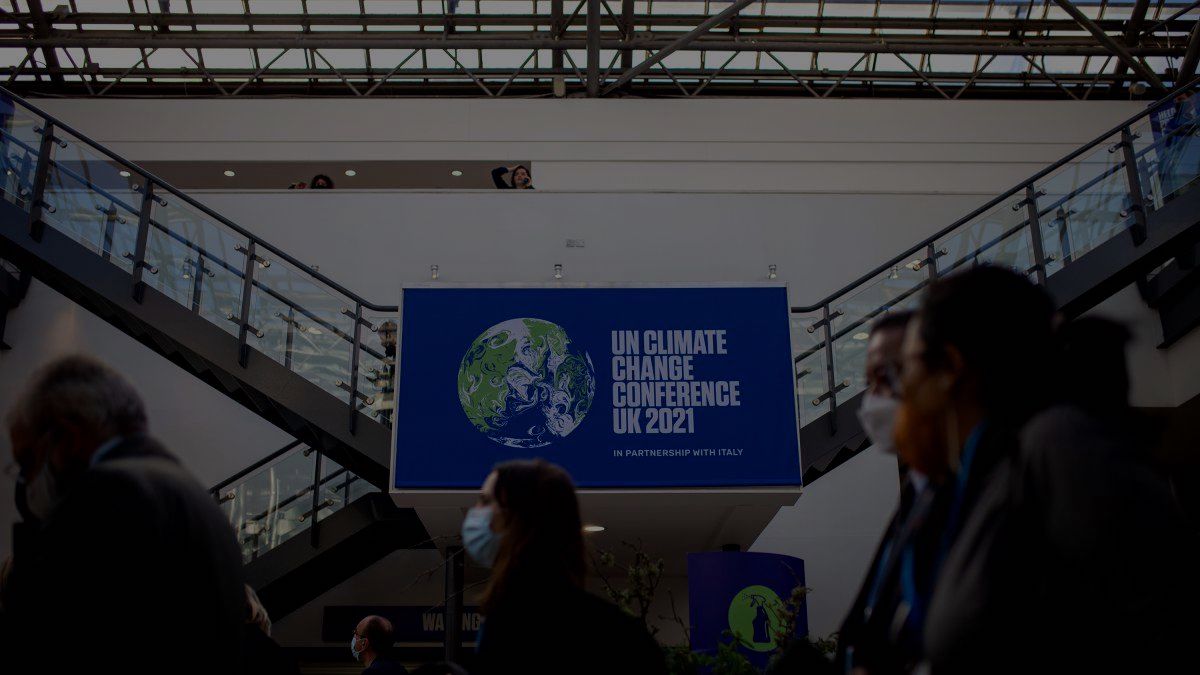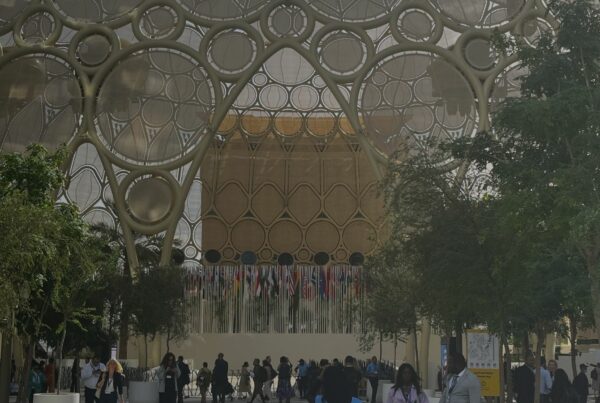By Ambassador Walton Webson, Chair of AOSIS, Permanent Representative of Antigua and Barbuda to the United Nations
The frenetic atmosphere in Glasgow has dissipated. The media spotlight has dimmed, and most negotiators – who have sacrificed weeks and even months away from home to fight for the future their loved ones deserve – can now breathe after enduring one of the most difficult and important climate negotiations to date.
For many COP26 delegates, there is a sense of relief that their work is complete. Yet for us inhabitants of small islands, the reality is starkly different. In 2022, we cannot rest easy because the work is never complete as we fight for 1.5 to stay alive.
At COP26, the Alliance of Small Island States (AOSIS), fought for the interests of small islands and climate vulnerable states. As Chair, I can say that our membership was forced to make compromises to ensure that the world received a climate pact that keeps us on the essential pathway of 1.5°C. It seems we small islands are always called on to compromise, to pay a high price for a crisis not of our making.
For us, always lurking, is the knowledge of the upcoming hurricane season, where residents of small island developing States (SIDS) anticipate another cycle of devastation that inevitably will displace our people, dismantle our livelihoods, and instil fear as we await the recovery of our biodiversity, infrastructure, and economies post disaster.
Coupled with the heightened uncertainty as we monitor the global spread of the new COVID-19 variant, Omicron, island leaders continue to face an uphill battle in our race to resilience.
For example, in Antigua and Barbuda, the effects of Hurricanes Irma and Maria in 2017 have severely impaired efforts to development. In a recovery needs assessment conducted by the World Bank Group; the total damages amounted to US$ 136.1 million, of which the tourism sector accounted for 44% of total damage costs, followed by housing at 37%. As a major contributor to GDP and employment, tourism is highly susceptible to shocks, and losses have devastating effects for the sustainable development potential of small islands and the safety of our people.
Last year in 2020, the Atlantic hurricane seasons generated the highest number of storms and hurricanes on record. To cope with the increased frequency and intensity of extreme events, SIDS countries accumulate more debt to accommodate recovery of essential services.
This is not just a problem for the islands, as we saw with the record-breaking floods in Europe. Climate disasters are affecting bigger countries, but the difference is their robust economies that can facilitate financing for timely recovery, at least for now. Unfortunately, our small islands with extremely limited resources to rebuild, are impacted at devastating levels.
As we reflect on COP26, we applaud the tireless commitment of negotiators who made important wins to move the dial forward, particularly the completion of the Paris Agreement rulebook. AOSIS is also encouraged by the finalisation of the Enhanced Transparency Framework to clearly track countries’ progress in tackling climate change. This will build mutual trust – the currency of multilateralism.
Another important element was the agreement of one common timeframe for all countries to implement the climate change measures described in their national climate plans. However, within the mitigation workstream, the lack of explicit recognition to enhanced support specific for SIDS to allow for higher ambitions in climate action must be addressed.
The Agreement of Article 6 of the Convention, after years of complex discussion, was also an important milestone. Article 6 sets the rules on how countries can reduce their emissions by using international carbon markets and non-market approaches. But, there is still room for improvement regarding explicit implementation of the infrastructure requirements. AOSIS will be monitoring the progress closely.
Which brings us to the issue of Loss and Damage. AOSIS has long championed the critical need for a formal, dedicated financing facility to assist countries stricken by climate disasters with recovery. AOSIS spearheaded a proposal for a Loss and Damage facility, in addition to funding for mitigation and adaption and received the support of the G77 and China. What we got instead was a commitment to dialogue on the issue. I can say with certainty that AOSIS will see to it that this dialogue advances to decisive, tangible action.
Much was made of the quantity of pledges from countries vowing to ramp up their climate action ambitions – but quantity of pledges matters not. It is quality of action that AOSIS is concerned with, in a manner that does not duplicate efforts but is grounded in the science, the efforts of civil society and our national governments.
There can be no period of long rest for us in small islands, as the climate crisis proceeds with unabated force.
Now that the cameras are off, we look forward to seeing which countries will rise to the occasion in this fight for our lives.





